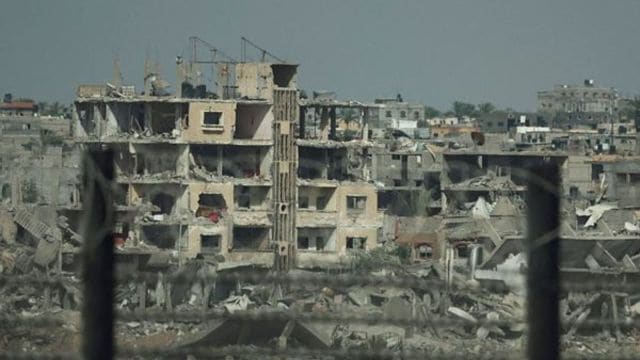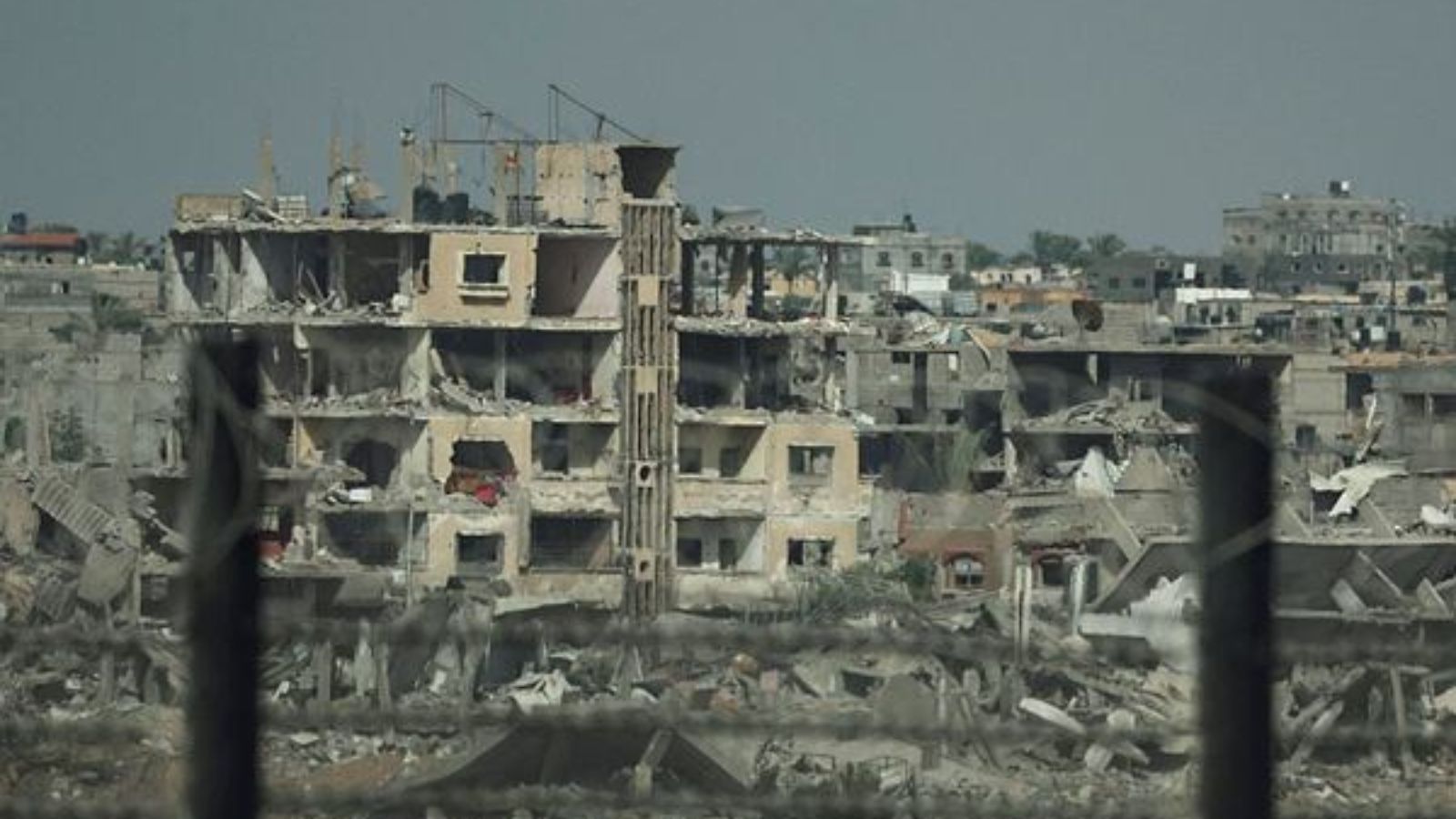
It has taken nearly 40,000 lives — 37,000 Palestinian and 1,200 Israeli — for the international community to realise the complexity and urgency of the critical situation in the Middle East and to revive the so-called two-state solution; and for Israel to recognise the reality of Palestinian aspiration for statehood and the near universal support for it. It has also exposed starkly the defiance and callousness with which the Israeli Prime Minister is using the war to hang on to office, dismissing pressure from his erstwhile supporters, including the American President. His aerial bombardment of a refugee camp in Rafah a few weeks ago outraged the French President Emmanuel Macron.
Macron has to worry about the big Algerian population in France and Biden has to worry about the Jewish vote as well as the young leftists in his own party. Personal interest of leaders in democratic societies, which they regard as coinciding with their nation’s interest, often trumps their foreign policy. In India, during the 1970s, for instance, the slogan was “India is Indira and Indira is India”.
It is ironic that it is Hamas, whom the entire Western world has rightly condemned as a terrorist organisation, in the light of what it did on October 7, that has succeeded in generating the support for an independent state of Palestine. Britain, which initiated the entire mess in 1917 with the Balfour Declaration, is now considering recognising an independent Palestinian state. It is none other than the President of America who is pressing Israel, the only democracy in the region and a bulwark against communism during the Cold War, to accept the reality of the Palestinian state. Arab governments, which have been keen to establish official relations with Israel, have been compelled to pay at least lip service to the Palestinian cause.
Why the Arab world has no stake in a Palestinian state
The sad fact for the Palestinian people is that no Arab government, except perhaps Egypt, wants to have a Palestinian state. Previously, they feared that an independent Palestine would most likely be a secular entity posing a threat to the autocratic gulf kingdoms. Many Palestinians, having lived in Western democracies for a long time, have imbibed liberal, secular values. After the Gaza war, the Arab states do not want an independent Palestinian state, since it would most likely be governed by Hamas. In this, Israel and the Arabs governments are on the same page.
Following the Abraham Accords, for which former US President Donald Trump rightly claims credit, three Arab states established diplomatic relations with Israel without asking for any meaningful Israeli gesture on the Palestinian issue. President Joe Biden was, and still is, working to broker an arrangement whereby Saudi Arabia would establish diplomatic relations with Israel in return for a vague security deal for the Saudis and acquiescence to its peaceful nuclear programme. The Palestine issue was mentioned but without any commitment from Israel. Since the Israeli invasion of Gaza, it has become difficult for this trilateral deal to go through. This is another unintended contribution of Netanyahu: In the absence of a clear path towards a Palestinian state guaranteed by Israel, Saudi Arabia and other Arab governments will not agree to normalise relations with the Jewish state.
Western Middle East experts are convinced that Netanyahu is unpopular in Israel and will lose the next election. The return of the Hamas-held hostages is second priority for him, winning the war, which means eradication of Hamas, is the first. He will not succeed in achieving the first and hence, the second priority will remain unfulfilled. He is neither “winning” the war nor has he managed to get the hostages back. Hamas does not care for the lives of “ordinary” Palestinians. Meanwhile, the war goes on and people keep getting killed.
It is said that all wars end, eventually. Either one side wins comprehensively or both sides are equally balanced and exhausted; a third party comes in and brings about a truce. In the case of Gaza, Israel has been unable to impose a solution on Hamas. Of course, this is not a war between two countries but between one country and a resistance movement. The United States, Egypt and Qatar have been engaged over several months to bring about a ceasefire. Israel is said to have agreed to the terms publicly outlined by President Biden, but Hamas wants a permanent ceasefire and the withdrawal of Israeli troops from the Gaza Strip before releasing the hostages. It all boils down to which side wants a ceasefire more, which side believes it has a stronger hand than the other.
Iran and its proxies
And then there is Iran. It is enjoying the situation. Its proxies — Hezbollah in Lebanon and the Houthis in Yemen — are doing their worst to inflame the situation further. Hezbollah is several times stronger than Hamas and has forced 7,00,000 Israelis out of their homes in northern Israel. The Houthis have seriously disrupted maritime traffic through the Red Sea, leading to higher transportation and insurance costs.
Where does India stand?
Where does India fit in, in this quagmire? Netanyahu is a close friend of Prime Minister Narendra Modi, who was among the first to condemn, and rightly so, the atrocities committed by Hamas on October 7. His support for Netanyahu goes beyond politics. India has agreed to send thousands of workers to Israel to replace the Palestinian workers there. This will permanently deprive the Palestinian people, who are not Hamas loyalists, from employment in Israel.
All international relations are transactional. Leaders will often speak of “shared values” such as freedom of speech, human rights, etc. Often this is done to placate the small minority of their people who may genuinely care for human rights. Domestic policy almost always trumps foreign policy. The Indian government would have calculated how its actions serve India’s national interests before making the call. How this is so, is not clear at least to this writer.
The writer is India’s former permanent representative to the UN and author of Centres of Power: My Years in the Prime Minister’s Office and Security Council
© The Indian Express Pvt Ltd
First uploaded on: 06-07-2024 at 12:34 IST



